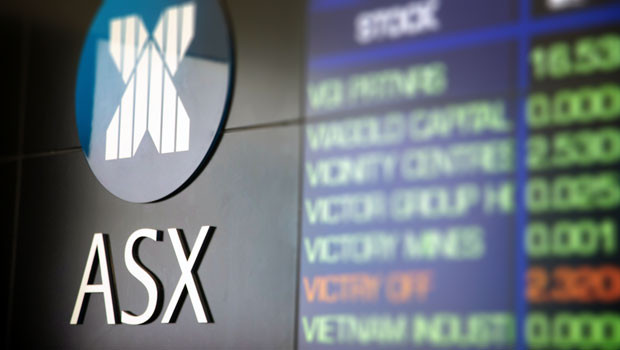Asia report: Markets mixed on growing hopes for Fed rate cut

Asia-Pacific equity markets ended mixed on Thursday as investors positioned for an expected US Federal Reserve rate cut next month.
14 August 2025 10:54:21
Source: Sharecast
Gains in Australia and New Zealand contrasted with declines in Japan, China, Hong Kong and South Korea.
“The yen experienced its largest gain in nearly two weeks following comments from US Treasury secretary Scott Bessent, who anticipated that Japan would raise interest rates to control inflation,” said TickMill market strategy partner Patrick Munnelly.
“Meanwhile, Asian stocks fell after a three-day increase. Japan's currency increased by as much as 0.7% against the dollar as Bessent pointed out that the Bank of Japan is lagging in its response to inflation and he expected it to increase rates.
“The dollar index declined for a third consecutive day, as Bessent also advocated for the Federal Reserve to implement a more accommodating monetary policy.”
Munnelly noted that other Asian currencies, including the Indonesian rupiah and Malaysian ringgit, also gained value.
“The stronger yen caused the Nikkei 225 stock average to drop ... pulling down the region's stock indices.
“Technology shares saw a decline while Chinese markets made gains; Bitcoin hit a record high and gold prices rose slightly.
“Bessent, who recommended that the Fed's benchmark rate should be at least 1.5 percentage points lower than its current level, mentioned that officials might have lowered rates had they been aware of the recent labor market data released shortly after the latest Federal Reserve meeting.”
Markets mixed as investors look to possible Fed rate cut
In Tokyo, the Nikkei 225 fell 1.35% to 42,688.50, with Mitsubishi Heavy Industries down 5.69%, Kawasaki Heavy Industries off 5.31%, and Furukawa Electric losing 5.1%.
The broader Topix shed 1.1% to 3,057.95.
Mainland Chinese stocks also retreated, with the Shanghai Composite down 0.46% at 3,666.44 and the Shenzhen Component slipping 0.87% to 11,451.44.
Heavy losses came from Shanghai Highly Group, Suzhou Jin Hong Shun Auto Parts and Aerospace Cf, each dropping around 10%.
In Hong Kong, the Hang Seng Index declined 0.37% to 25,519.32, weighed by Lenovo Group, BYD Electronic International and Link REIT, which fell between 4% and 6%.
South Korea’s Kospi 100 eased 0.07% to 3,273.48 as Hanon Systems plunged 15.51%, Hankook Tire slid 12.44% and LG Display dropped 10.61%.
In Australia, the S&P/ASX 200 rose 0.53% to 8,873.80, supported by strong gains in Origin Energy, Westpac Banking Corporation and Pro Medicus, each up over 6%.
Westpac advanced 6.31% after reporting a 5% rise in third-quarter net profit to AUD 1.9bn, aided by higher net interest income and margins, resilient consumer spending and easing domestic inflation.
New Zealand’s S&P/NZX 50 also climbed 0.53% to 12,834.08, led by a 6.45% gain in Westpac’s Wellington listing, alongside rises in Eroad and Pacific Edge.
In currency markets, the dollar fell 0.6% on the yen to trade at JPY 146.50, as it rose 0.23% against the Aussie to AUD 1.5312, and advanced 0.38% on the Kiwi, changing hands at NZD 1.6796.
Brent crude futures were last up 0.35% on ICE at $65.86 per barrel, while the NYMEX quote for West Texas Intermediate added 0.37% to $62.88.
Australian unemployment edges down, import prices rise in Korea
In economic news, Australia’s unemployment rate edged down to 4.2% in July, matching economists’ expectations and improving from 4.3% in June, according to official figures.
The Australian Bureau of Statistics reported that employment grew by 24,500 last month, following a revised gain of 1,000 in June.
While the increase marked a solid rebound, it fell slightly short of the 25,000 rise forecast in a Reuters poll.
In South Korea, import prices rose for the first time in six months in July, driven by higher global oil costs and a weaker won, according to preliminary Bank of Korea data.
The import price index climbed 0.9% from June, reversing a five-month decline, as the average price of Dubai crude - the country’s benchmark - rose 2.3% to $70.87 per barrel.
The won weakened 0.6% against the dollar to an average of 1,375.22 per dollar over the month.
Export prices also increased for the first time in four months, gaining 1% from June.
Reporting by Josh White for Sharecast.com.
